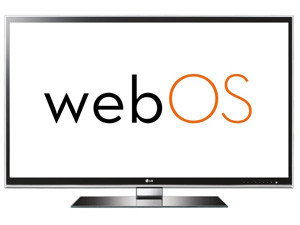
LG has acquired the webOS operating system technology from HP and will use it in its next-generation smart TVs.
A joint statement issued by the companies says: "LG has entered into a definitive agreement with HP to acquire the source code, associated documentation, engineering talent and related Web sites associated with webOS.
"As part of the transaction, LG also will receive licences under HP's intellectual property for use with its webOS products, including patents acquired from Palm covering fundamental operating system and user interface technologies now in broad use across the industry."
Both companies declined to reveal the terms of the deal.
LG Electronics' CTO, Skott Ahn, says: "[The acquisition] creates a new path for LG to offer an intuitive user experience and Internet services across a range of consumer electronics devices.
"The open and transparent webOS technology offers a compelling user experience that, when combined with our own technology, will pave the way for future innovations using the latest Web technologies."
HP acquired webOS in 2010 through its $1.2 billion buyout of handheld device pioneer, Palm. In 2011, the PC-maker put the OS to work in its "TouchPad" tablet and the Veer and Pre3 smartphones.
WebOS was HP's bid to offer devices with fully integrated hardware and software - a strategy that has proven extremely successful for Apple, but which many have failed to replicate. At the time, HP said it was embarking on a "new era of webOS" and had aspirations to offer the best mobile experience available at the time. However, the devices failed to capture consumer attention.
After the TouchPad was on the market for just seven weeks, HP announced its plans to exit the webOS hardware space and issued a declaration to retailers to start liquidating TouchPad inventories. In 2012, HP opened the webOS platform to developers and companies in an effort to recoup its investment.
Long-term plan?
While webOS has been praised for its design and usability, the lack of a supporting app ecosystem has been its biggest weakness in the highly competitive mobile OS space which is dominated by Android and iOS.
LG says it will keep the webOS team in Silicon Valley and, for now, will continue to be based out of HP offices.
It has been noted that LG's long-term plans for webOS seem somewhat unclear. Speaking to The Verge, Ahn said in the short-term, webOS will be applied to smart TVs only: "But in the future, wherever our plans take us, we'll consider an extension to other devices."
When asked why it made more sense to invest in webOS rather than to repurpose Android, Ahn said LG plans to use both platforms, but added that webOS offered some advantages, such as user experience.
According to the agreement, HP will continue to support Palm users and retain ownership of all of Palm's cloud computing assets, including source code, talent, infrastructure and contracts. LG will, however, assume "stewardship" of the open source projects of Open webOS and Enyo.
HP's COO, Bill Veghte, says: "We will focus on delivering innovative solutions that will enable our enterprise customers to mobilise their workforce."
Following HP's failure in the consumer tablet market with the TouchPad, the company has this week attempted to try and test the waters once more - only this time by adopting the Android platform.
HP unveiled the Slate 7 at Mobile World Congress, in Barcelona. The seven-inch tablet is aimed at the mid-level tablet market, and is primarily an entertainment device. HP has, however, indicated it is just the start of a new line of Android offerings from the company.
Share